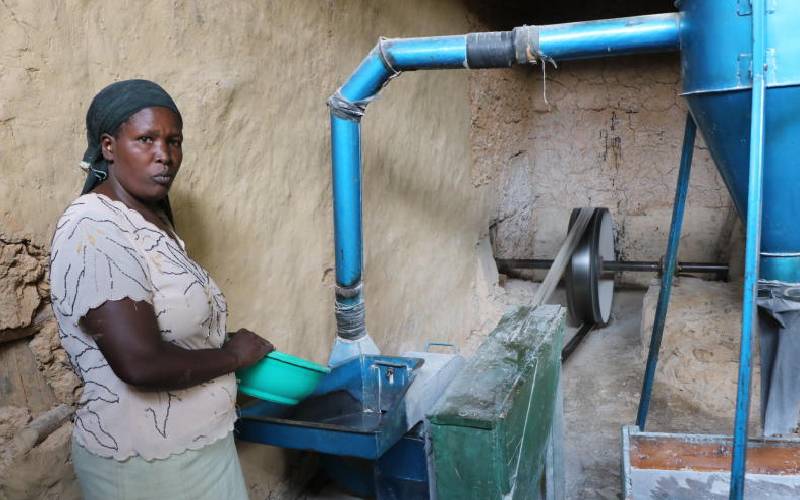×
The Standard e-Paper
Home To Bold Columnists

Sarah Musitia, a resident of Imuliru village in Ikolomani, Kakamega County, explains how the water powered posho mill works on March 17, 2022. [Benjamin Sakwa, Standard]
Sarah Musitia has never bought maize flour since she got married 27 years ago.